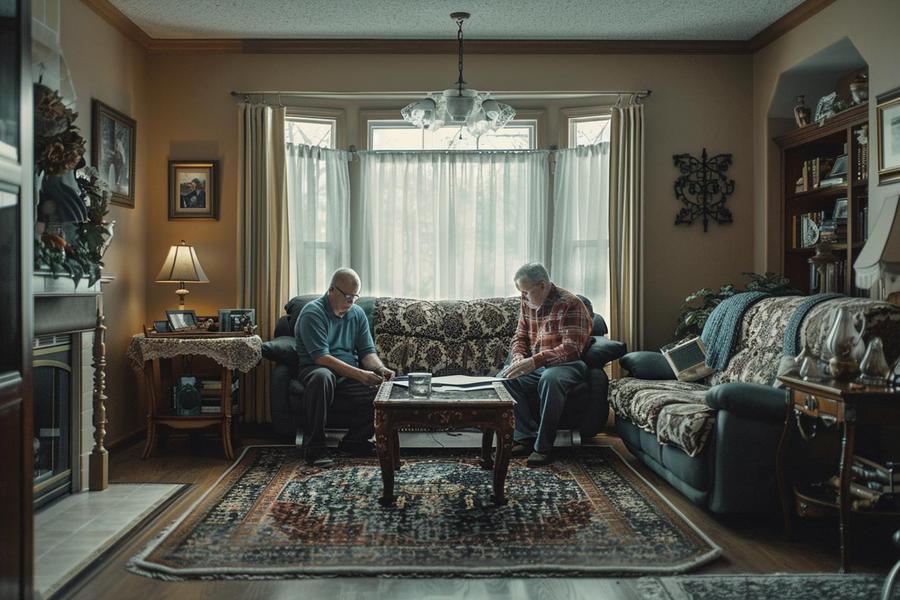Wondering if you can sell your house but keep living in it? You’re not alone. I’ve talked to plenty of Richmond homeowners who absolutely love their homes but need to free up some cash—and honestly, the idea of packing up and leaving feels overwhelming. The good news? It’s actually possible through something called a sale-leaseback or similar arrangement. This guide from Eagle Cash Buyers walks through how to make it happen, what the real benefits are, and the steps you’ll want to take to protect yourself. If you want to sell my house fast in Richmond but can’t imagine moving, read on.
TL;DR:
- Yes, you can stay in your home after selling with a sale-leaseback.
- Benefits: cash influx, no moving stress, stay in your neighborhood.
- Misconceptions: too complex, bad financially—often untrue with good terms.
- Legal: know your tenant rights and have a strong lease.
- Trade-off: you give up some equity for speed and certainty.
Can You Sell Your House and Still Live in It?
Yes—though it might seem counterintuitive at first. With the right agreement in place, you can actually sell your home and remain there as a tenant. I’ve seen many homeowners do this when they need to unlock their home’s equity but can’t stomach the thought of uprooting their entire lives. It tends to work particularly well in competitive markets and with investors who see value in having a reliable, long-term tenant already in place. What matters most? Negotiating terms that genuinely fit your needs and budget, not just accepting whatever’s first offered.
What Are the Benefits of Selling Your House but Still Living in It?
Staying put after selling your home can offer some pretty compelling advantages:
- You get a lump sum of cash that could help pay off medical bills, credit card debt, or even fund a new business venture.
- Your kids don’t have to switch schools mid-year, and you keep that same 15-minute commute you’ve perfected.
- No dealing with movers, bubble wrap, or that inevitable box of miscellaneous items that never gets unpacked.
- Time to actually think about where you want to go next—maybe you’re waiting for retirement, or perhaps you’re eyeing a specific neighborhood that rarely has listings.
If you’re someone who values your community connections and just needs some financial breathing room, this could be exactly what you’re looking for.
How Does Selling a House and Continuing to Reside There Work?
The most common approach involves what’s called a sale-leaseback. Here’s how it typically goes: you sell to a buyer (usually an investor, though not always) and immediately sign a lease to rent the place back. That lease should spell out everything—your monthly rent, how long you can stay, who fixes the leaky faucet. When selling a house in Virginia, standard tenant rights and lease laws kick in once you become a renter, so it’s worth getting local legal advice before you sign anything.
Here’s a real example: Say your home could sell for $250,000 in perfect condition. But it needs a new roof and some plumbing work—let’s call it $20,000 in repairs. An investor who’s looking for a $25,000 profit might offer you $205,000 cash. You’re getting less than full market value, sure, but you’re also getting that money in two weeks instead of six months, and you don’t have to fix a thing. That’s the trade-off.
What Are the Common Misconceptions?
People often assume:
- The whole process is impossibly complicated—but honestly, with a clear lease agreement, it’s not much different from any other rental situation.
- It’s always a terrible financial decision—which isn’t necessarily true if it helps stabilize your finances and keeps you from foreclosure.
- No buyer would ever agree to this—yet many investors actually prefer it because they get steady rental income from day one.
Reasons Why Homeowners Choose to Stay After Selling

When I ask homeowners why they want to stay, the answers are almost always personal. Maybe it’s the neighbor who waters your plants when you’re away, or that perfect reading nook by the window. Some folks have spent years getting their garden just right. Others simply can’t imagine their morning routine without that specific kitchen layout they’ve grown to love. By selling their house but keeping their home’s comfort, they solve financial problems without sacrificing what matters most to them.
The Financial Implications of Selling Your Home but Living in It
Let’s be honest about the money side. Both home reversion plans and sale-leasebacks can free up significant cash, but the details matter. You’ll need to factor in monthly rent (which might be higher or lower than your old mortgage), the fact that you’re no longer building equity, and how this might affect any government benefits you receive. Some folks who sell my house fast in Norfolk to investors find they can negotiate surprisingly flexible rent terms—especially if they’ve been good neighbors and maintained the property well.

Legal Considerations When Selling Your House and Continuing to Live There
This part’s crucial: always, always get a written lease. I’ve seen too many handshake deals go sideways. Your lease should clearly state the rent amount, when it’s due, how long you can stay, and who’s responsible for what. Once you’re a tenant, local landlord-tenant laws apply—which could actually work in your favor. A quick consultation with a real estate attorney might cost a few hundred dollars but could save you thousands in headaches later.
Preparing Your Home for Sale While Living In It

Selling while living in your home? It’s doable, but it takes some strategy. Start by boxing up that collection of snow globes and maybe half your books—buyers need to imagine themselves in the space. Consider scheduling all showings for Saturday mornings if that works for you, rather than random pop-ins all week. And yes, keeping the place “show-ready” with three kids and a dog is exhausting, but it’s temporary.
Seller Checklist:
- Get a property valuation (or two—opinions can vary).
- Research investors and buyers who might be open to rent-back arrangements.
- Talk to a real estate attorney—seriously, don’t skip this.
- Negotiate lease terms and get everything in writing.
- Make sure your budget accounts for monthly rent going forward.
- Prep the home for showings (or skip this entirely if selling as-is to an investor).
Selling to an Investor vs. Traditional Buyer: What’s Best for Homeowners Who Want to Stay?
Here’s where things get interesting. Investors typically buy properties as-is, close within weeks rather than months, and—this is key—they’re often completely fine with rent-back arrangements. Why? Because they get an instant tenant who already knows every quirk of the house. Traditional buyers, on the other hand, usually want to move in themselves. They might need bank approval for any unusual arrangements, which can complicate things. If you’re looking to sell my house fast in Chesapeake to an investor, the whole “can I stay?” conversation tends to go much smoother.
FAQs About Selling Your House and Staying In It
Can I negotiate the rent amount? Absolutely. Look at what similar homes rent for in your neighborhood—though investors might offer slightly below market rate in exchange for having a tenant they know will take care of the place.
What happens if I miss rent payments? Same as any rental: your lease spells out the consequences, which could eventually mean eviction. If you see trouble coming, talk to your landlord early—they’d usually rather work something out than find a new tenant.
Is this option available everywhere? It’s definitely easier in hot markets where investors are active, but I’ve seen it work in smaller towns too. If you want to sell my house fast in Arlington, the strong rental demand there might actually make negotiations easier.
Will I pay property taxes? Nope—that’s the new owner’s responsibility now. Though let’s be real, they’re probably factoring those costs into your rent somehow.
Can I buy back my home later? It’s possible if you negotiate a buyback clause upfront, but these are pretty rare. And even when they exist, you’ll likely pay more than what you sold for—the new owner needs to make their investment worthwhile.





